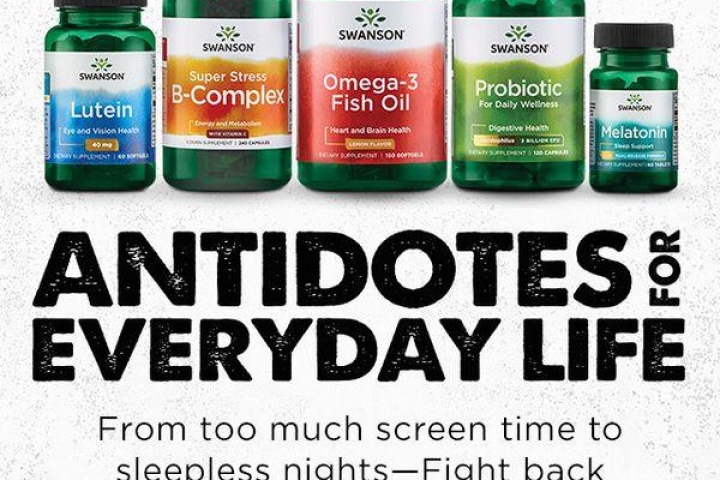What is Chromium?
Chromium, a key player in regulating blood sugar levels, assists insulin in converting sugars and starches into energy by facilitating glucose transport into cells.1 Additionally, it contributes to the normal metabolism and storage of fats, proteins, and carbohydrates. Although only small amounts are needed to maintain metabolic functions, chromium remains an essential mineral in our daily diets.
Signs of Chromium Deficiency
According to the University of Maryland Medical Center, up to 90% of Americans might not be receiving sufficient chromium from their diets alone, although true deficiency is rare and challenging to define accurately.2
Pregnant women, the elderly, sugar enthusiasts, and those engaged in regular high-intensity exercise are at a higher risk of chromium deficiency than the general adult population. The industrialization of the American food supply, distancing from fertile farmlands and mineral-rich soils, also contributes to lower chromium levels.
Indicators of low chromium or deficiency include:
- Poor blood sugar metabolism
- Fatigue and lack of energy
- Changes in weight, appetite, or mood
How Much Chromium Do I Need?
The answer is surprisingly little—just micrograms (mcg). According to the National Institutes of Health:
In 1989, the National Academy of Sciences determined an “estimated safe and adequate daily dietary intake” range for chromium, setting it at 50 to 200 mcg for adults and adolescents. By 2001, Daily Reference Intakes (DRIs) for chromium were established, with Adequate Intakes (AIs) based on average chromium consumption from food, as evidenced in several studies, due to insufficient research for establishing Recommended Dietary Allowances (RDAs).1
Daily Chromium Recommendations
- Adult Males — 35 mcg
- Adult Females — 25 mcg
- Males 50+ — 30 mcg
- Females 50+ — 20 mcg
- Pregnant Women — 30 mcg
- Breastfeeding Women — 45 mcg
Foods High in Chromium
Measuring the chromium content in food is challenging due to variations in agricultural and livestock production practices. For example, the chromium content in one cup of broccoli can vary depending on where and how it was grown.
Nevertheless, chromium is readily available in many common foods, making it feasible to increase your intake if needed. Meat, whole grain products, and a variety of fruits and vegetables are excellent sources. Brewer’s yeast, frequently found in health food stores, is also rich in chromium.
High Chromium Foods Grocery List
- Beef
- Turkey breast deli meat
- Cheese
- Whole wheat bread
- Oatmeal
- Apples
- Bananas
- Prunes
- Orange or grape juice
- Potatoes
- Green beans
- Asparagus
- Mushrooms
- Broccoli
- Nuts
- Garlic
- Basil
What About Chromium Supplements?
Nutrition experts suggest that meeting our minimal daily chromium requirements through diet should not be difficult. However, opinions on the benefits of chromium supplements, such as chromium picolinate or chromium polynicotinate, for healthy adults remain mixed.
Individuals with blood sugar or heart-health concerns might find chromium supplements beneficial in maintaining normal levels. Similarly, those managing their weight may advocate for chromium picolinate supplements, although scientific evidence remains inconclusive.
If you're already taking a multivitamin, check the label to see if it includes chromium. Consult with your doctor or primary healthcare provider before introducing a chromium supplement, especially if you are on prescription medications.
Explore more about heart-health essentials in Vitamin K2: Types, Benefits and Food Sources and Be Fat Fluent: Best Fatty Foods for Your Diet.
About Lindsey Toth, MS, RD
Lindsey is a nationally-recognized registered dietitian and nutritionist with a fondness for pie. She encourages people to take charge of their health by balancing pleasure and nourishment in their diet. Her philosophy is rooted in the belief that our bodies are our only permanent homes, which motivated her to pursue a career in nutrition.
*These statements have not been evaluated by the Food and Drug Administration. These products are not intended to diagnose, treat, cure, or prevent any disease.
Sources
1 National Institutes of Health: Chromium Dietary Supplement Fact Sheet. https://ods.od.nih.gov/factsheets/Chromium-HealthProfessional/
2 University of Maryland Medical Center: Chromium. http://www.umm.edu/health/medical/altmed/supplement/chromium





Leave a comment